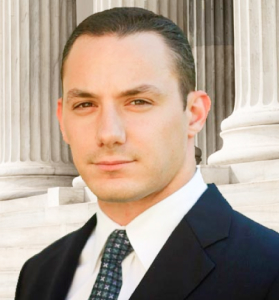This page was written, edited, reviewed & approved by Emil J. Fleysher following our comprehensive editorial guidelines. Emil J. Fleysher, the Founding Partner, has 15+ years of legal experience as a bankruptcy attorney. Our last modified date shows when this page was last reviewed.

Under the current state of the law, discharging student loans in bankruptcy is incredibly difficult but not impossible. In the United States, student loans are typically not eligible for discharge in bankruptcy unless the debtor can establish "undue hardship."
In interpreting whether a debtor's student loans pose an undue hardship on the debtor, bankruptcy courts apply either the "Brunner Test "(Brunner v. New York State Higher Education Services, 831 F.2d 395 (2d Cir. 1987)) or the "totality of the circumstances" test.
Under the totality of the circumstances test, a bankruptcy court considers the following: the debtor's past, present, and reasonably estimated future financial resources; the debtor's—and any dependent's—reasonably necessary living expenses; and other relevant facts or circumstances that are unique to the case that might could hinder the debtor's ability to repay the student loans in question while still allowing the debtor to maintain a basic standard of living, even when aided by a discharge of other prepetition debts.
To prove undue hardship, the debtor must file an adversary proceeding in bankruptcy court and show that:
The first requirement, the inability to maintain a minimal standard of living, means that the debtor must show that they cannot afford to pay both their student loan debt and their basic living expenses. This includes things like housing, food, and healthcare.
The second requirement, the persistence of undue hardship, means that the debtor must show that their financial situation is unlikely to improve in the foreseeable future. This means that the debtor's current financial hardship must be expected to last for a significant portion of the repayment period for their loans.
Finally, the debtor must show that they have made sincere and genuine efforts to repay their loans. This means they must have made reasonable efforts to pay their loans, such as exploring repayment options or negotiating with the lender.
This is a high standard to meet, and very few bankruptcy filers are successful in discharging student loans through bankruptcy. However, it is worth noting that recent legislative proposals have called for changes to bankruptcy laws to make it easier for borrowers to discharge student loan debt.

Navigating the complex process of discharging student loans in bankruptcy requires the expertise of experienced attorneys who understand the intricate nuances of the law. At Fleysher Law, we stand ready to help you pursue the possibility of discharging student loans despite the challenges. Here's how we can assist you:
Although discharging student loans in bankruptcy is complex and success is not guaranteed, our dedicated attorneys are committed to providing you with the best possible legal representation. If you are facing student loan debt and considering bankruptcy, contact Fleysher Law today for a confidential consultation.
Let us be your trusted partner in pursuing financial relief and exploring all available options to achieve a brighter financial future.

Emil specializes in consumer bankruptcy, debt settlement, and mortgage modification, offering a holistic approach to solving mortgage and debt problems. Emil listens to clients, understands their circumstances and goals, and helps them make the right choices by presenting all options and contingencies.
He is dedicated to helping South Floridians regain their financial freedom from overwhelming debt caused by high interest credit cards, bad mortgage loans, and uninsured medical expenses.

"*" indicates required fields